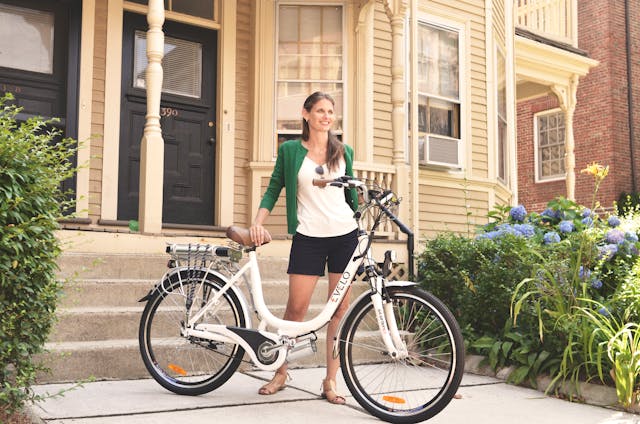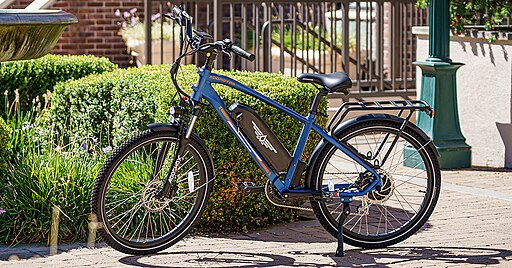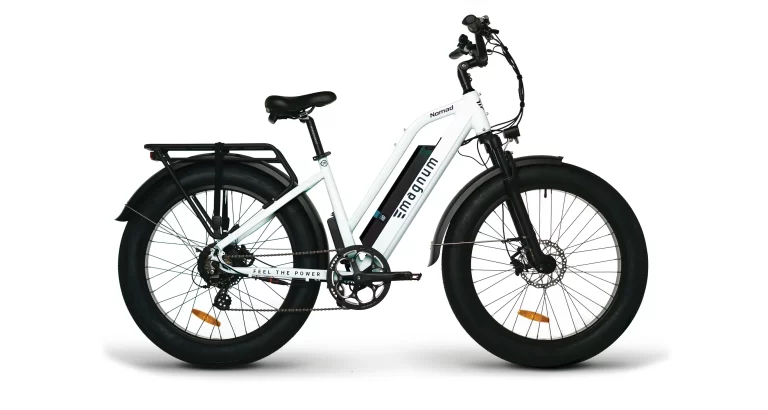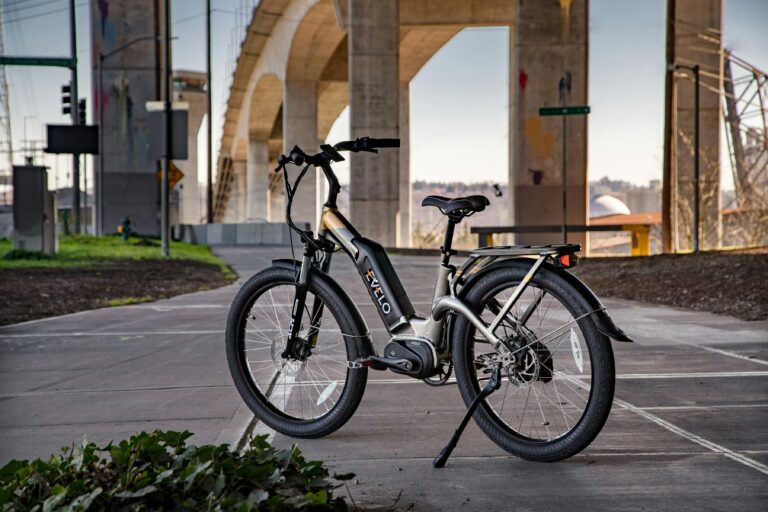Exploring Government Grants for Electric Bikes: A Comprehensive Guide
In recent years, electric bikes (e-bikes) have surged in popularity as a sustainable and efficient mode of transportation. Offering a perfect blend of traditional cycling and electric power, these vehicles have captured the attention of commuters, outdoor enthusiasts, and eco-conscious individuals alike. With their ability to navigate urban landscapes with ease and conquer challenging terrain, e-bikes have become a go-to choice for many seeking an alternative to traditional vehicles. The global electric bike market is experiencing exponential growth, driven by advancements in technology, increased environmental awareness, and a desire for healthier lifestyles.
Introduction to Government Grants and Subsidies for Electric Bikes
Recognizing the potential of electric bikes to alleviate traffic congestion, reduce carbon emissions, and promote healthier living, governments at various levels have introduced grants and subsidies to incentivize their adoption. These financial incentives aim to make e-bikes more accessible and affordable for a wider range of individuals, thereby encouraging the transition towards greener forms of transportation. Whether through direct financial assistance, tax incentives, or community programs, government support plays a crucial role in accelerating the adoption of electric bikes and building sustainable transportation infrastructure.
In this comprehensive guide, we will delve into the world of government grants for electric bikes, exploring the various types of financial assistance available to potential buyers. From low-income assistance programs to state-specific grants and community initiatives, we will uncover the diverse array of opportunities designed to make e-bikes more attainable for everyone. Additionally, we will discuss eligibility criteria, application processes, and key considerations for those seeking to take advantage of these grants. By the end of this blog post, readers will gain a thorough understanding of how government support can help them embrace the benefits of electric biking while contributing to a cleaner, healthier planet.
Key Takeaways
- Government grants make electric bikes more accessible to all income groups:
- By providing financial assistance and subsidies, government grants ensure that electric bikes are within reach for individuals across various income brackets. This accessibility promotes equity and enables more people to embrace sustainable transportation options.
- State-specific programs cater to the unique needs of local communities:
- State-specific electric bike grant programs are tailored to address the specific transportation challenges and priorities of different regions. This localized approach allows for targeted solutions that meet the diverse needs of communities across the country.
- Qualifying for grants often depends on income, age, and other factors:
- Eligibility for government grants for electric bikes may be influenced by factors such as income level, age, employment status, and residency. Understanding the eligibility criteria is essential for potential applicants to determine their eligibility and maximize their chances of securing funding.
- Tax incentives provide additional savings for e-bike buyers:
- Tax incentives, such as credits and deductions, offer additional financial benefits to individuals purchasing electric bikes. These incentives reduce the overall cost of ownership and make e-bikes a more attractive option for consumers seeking to save money while reducing their environmental footprint.
- Community programs foster a culture of sustainable transportation:
- Community-based initiatives, including subsidies, bike-sharing programs, and infrastructure improvements, play a vital role in promoting the adoption of electric bikes and encouraging active transportation habits. These programs cultivate a sense of community engagement and environmental stewardship.
- Businesses can benefit from investing in electric bicycles for employees:
- Grants for businesses to invest in electric bicycles offer opportunities for companies to enhance employee wellness, productivity, and satisfaction. By providing e-bikes as a transportation option, businesses can reduce commuting costs, promote physical activity, and demonstrate corporate social responsibility.
- Government-funded e-bike share programs promote widespread adoption:
- Government-funded e-bike share programs expand access to electric bicycles for short-term use, making them a convenient and affordable transportation option for residents and visitors alike. These programs play a crucial role in normalizing e-bike usage and encouraging broader adoption within communities.
Understanding Government Grants for Electric Bikes
Definition and Purpose of Government Grants for E-Bikes
Government grants for electric bikes, also known as subsidies or financial assistance programs, are initiatives offered by governmental bodies to encourage the adoption of e-bikes as a sustainable mode of transportation. These grants aim to offset the initial cost barrier associated with purchasing electric bicycles, making them more accessible to a wider range of individuals. By providing financial incentives, governments seek to incentivize the transition from traditional gasoline-powered vehicles to eco-friendly alternatives like e-bikes, thereby reducing carbon emissions, alleviating traffic congestion, and promoting healthier lifestyles.
Importance of These Grants in Promoting Sustainable Transportation
Government grants for electric bikes play a pivotal role in promoting sustainable transportation practices and addressing environmental challenges. As cities grapple with issues such as air pollution and traffic congestion, e-bikes offer a promising solution by providing a clean and efficient means of travel. By subsidizing the purchase of electric bicycles, governments can encourage more people to choose eco-friendly modes of transportation, ultimately leading to a reduction in greenhouse gas emissions and an improvement in overall air quality. Additionally, e-bikes contribute to the development of sustainable urban infrastructure and support the creation of bike-friendly communities, fostering a culture of active transportation and environmental stewardship.
RELATED CONTENT – Guide to Getting a Free Electric Bike
RELATED CONTENT – Are There Any Specific Training Programs for Riding an Electric Bike?
Exploring Different Types of Government Grants
Low-Income Assistance for Purchasing Electric Bikes
Low-income assistance programs for purchasing electric bikes are initiatives designed to ensure that individuals from economically disadvantaged backgrounds have access to sustainable transportation options. These programs typically offer financial support or subsidies to help offset the cost of purchasing an electric bicycle for individuals or families with limited financial means.
By providing assistance specifically targeted at low-income households, governments aim to remove barriers to entry and promote equity in access to eco-friendly transportation alternatives. Such programs not only facilitate the adoption of electric bikes among underserved communities but also contribute to reducing reliance on fossil fuels and improving air quality in economically marginalized areas.
State-Specific Electric Bike Grant Programs
State-specific electric bike grant programs are initiatives implemented at the regional level to address the unique transportation needs and challenges of individual states or provinces. These programs may vary in scope, eligibility criteria, and funding mechanisms depending on the priorities and resources of each jurisdiction.
State governments often collaborate with local authorities, non-profit organizations, and private sector partners to develop comprehensive grant programs tailored to the specific geographic, demographic, and environmental characteristics of their region.
By offering targeted incentives and support for electric bike adoption, state-specific grant programs play a crucial role in advancing sustainable transportation goals, fostering innovation, and driving economic growth at the local level.
RELATED CONTENT – How Do You Properly Dispose of or Recycle an Electric Bike Battery?
RELATED CONTENT – How Does the Cost of Owning an Ebike Compare to a Regular Bike or Car?
Community Programs Offering Electric Bike Subsidies
Community programs offering electric bike subsidies are grassroots initiatives driven by local organizations, municipalities, or non-profit groups to promote the adoption of e-bikes within their communities.
These programs typically involve partnerships with businesses, advocacy groups, and government agencies to provide financial incentives or discounts for purchasing electric bicycles. By leveraging community resources and support networks, these programs aim to make e-bikes more accessible and affordable for residents while fostering a sense of collective responsibility toward sustainable transportation practices.
Community-based subsidies often include educational outreach, bike-sharing programs, and infrastructure improvements to further encourage e-bike use and create a culture of active mobility within neighborhoods.
RELATED CONTENT – Electric Bike Buying Guide
Electric Bike Financing Options for Seniors
Electric bike financing options tailored for seniors address the specific needs and preferences of older adults seeking alternative modes of transportation. As the population ages and mobility becomes increasingly important for maintaining independence and quality of life, seniors are turning to e-bikes as a convenient and accessible means of getting around.
Financing options for seniors may include low-interest loans, installment plans, or deferred payment schemes offered by banks, credit unions, or e-bike retailers. These financing solutions are designed to accommodate fixed incomes and budget constraints commonly associated with retirement, allowing seniors to enjoy the benefits of electric biking without the burden of upfront costs.
Additionally, some programs may provide specialized e-bike models with features such as step-through frames, comfortable seating, and integrated safety features to cater to the unique needs of older riders. By offering flexible financing options, governments and organizations can empower seniors to maintain active lifestyles, stay connected to their communities, and age in place with dignity and independence.
Tax Incentives for Switching to Electric Bikes
Tax incentives for switching to electric bikes are financial benefits provided by governments to individuals or businesses as a way to incentivize the adoption of eco-friendly transportation options. These incentives typically take the form of tax credits, deductions, or exemptions that reduce the overall tax burden associated with purchasing, owning, or using electric bicycles.
By offering tax incentives, governments aim to encourage consumers to choose electric bikes over conventional vehicles, thereby reducing greenhouse gas emissions, alleviating traffic congestion, and promoting sustainable mobility solutions.
Tax incentives may vary depending on the jurisdiction and can include credits for the purchase price of e-bikes, deductions for related expenses such as charging equipment and maintenance, or exemptions from sales or value-added taxes on electric bike sales.
Some tax incentives may be combined with other grant programs or subsidies to maximize the financial benefits for e-bike buyers, making them an attractive option for individuals looking to make the switch to greener transportation alternatives.
RELATED CONTENT – Affordable Electric Bikes Under $500
Benefits of Government-Funded E-Bike Share Programs
Government-funded e-bike share programs are public initiatives that provide access to electric bicycles for short-term rental or use within designated urban areas. These programs are typically operated by municipal governments, transportation authorities, or private operators with support from government funding sources. E-bike share programs offer numerous benefits for cities, communities, and individuals alike.
Firstly, they provide an affordable and convenient transportation option for short-distance trips, such as commuting to work, running errands, or exploring the city. By integrating electric bikes into existing bike share systems, governments can expand the reach and accessibility of sustainable transportation networks, complementing public transit and reducing reliance on private vehicles.
Additionally, e-bike share programs promote physical activity, improve public health outcomes, and reduce traffic congestion and air pollution by encouraging mode shift away from cars. Moreover, these programs can stimulate local economies, create jobs, and support small businesses involved in bike manufacturing, maintenance, and operations.
Government-funded e-bike share programs represent a forward-thinking approach to urban mobility that prioritizes sustainability, equity, and innovation in transportation planning and policy.
RELATED CONTENT – Electric Bikes for Teens Buying Guide
Local Government Initiatives Supporting E-Bike Adoption
Local government initiatives supporting e-bike adoption encompass a range of policies, programs, and infrastructure investments aimed at promoting the use of electric bicycles within communities. These initiatives are typically spearheaded by city councils, transportation departments, or sustainability offices in collaboration with local stakeholders, advocacy groups, and businesses.
One common approach taken by local governments is the development of e-bike-friendly infrastructure, such as dedicated bike lanes, secure parking facilities, and charging stations, to encourage safe and convenient riding. Additionally, local governments may offer incentives or subsidies for e-bike purchases, provide educational resources and training opportunities for riders, and launch public awareness campaigns to highlight the benefits of electric biking.
By championing e-bike adoption at the grassroots level, local governments can address pressing urban challenges, including traffic congestion, air pollution, and limited access to affordable transportation options. Moreover, these initiatives can help foster a sense of community engagement and empowerment, as residents collaborate to create more sustainable and livable cities for all.
Grants for Businesses to Invest in Electric Bicycles
Grants for businesses to invest in electric bicycles are financial incentives provided by governments to encourage companies to incorporate e-bikes into their operations or offer them as employee benefits. These grants may be offered at the federal, state, or local level and are typically aimed at promoting sustainable transportation practices, reducing carbon emissions, and improving employee health and well-being.
Businesses can use grant funds to purchase e-bikes for employee commuting, establish bike-sharing programs on-site, or invest in electric cargo bikes for delivery and logistics purposes. By subsidizing the cost of electric bicycles, governments incentivize businesses to embrace eco-friendly transportation solutions and contribute to broader sustainability goals.
Grants for businesses to invest in electric bicycles can yield numerous benefits, including reduced transportation costs, increased productivity and efficiency, and enhanced corporate social responsibility. Moreover, by supporting the growth of the e-bike industry, these grants stimulate economic development, create job opportunities, and foster innovation in clean technology and urban mobility solutions.
How to Qualify for Government Grants for E-Bikes
Eligibility Criteria for Various Grant Programs
Eligibility criteria for government grants for electric bikes can vary depending on the specific program and jurisdiction. However, there are some common factors that applicants may need to meet to qualify for assistance. These criteria often include residency requirements, age restrictions, income thresholds, and proof of e-bike purchase or ownership.
Eligibility may be contingent on factors such as employment status, disability status, or participation in certain government assistance programs. It’s essential for potential applicants to carefully review the eligibility requirements of each grant program to determine their eligibility and ensure they meet all necessary criteria before applying.
Steps to Apply for Government Grants for Electric Bikes
The application process for government grants for electric bikes typically involves several steps, which may vary depending on the administering agency or organization. However, some common steps include researching available grant programs, gathering required documentation, completing the application form, and submitting the application by the specified deadline.
Applicants may need to undergo a review process, which may include eligibility verification, documentation review, and possibly an interview or evaluation. It’s important for applicants to carefully follow the instructions provided by the grant program and submit all required materials in a timely manner to ensure their application is considered for funding.
Common Requirements and Documentation Needed for the Application Process
Common requirements and documentation needed for the application process for government grants for electric bikes may include:
- Proof of residency: Applicants may need to provide documentation demonstrating that they reside within the jurisdiction covered by the grant program.
- Proof of identity: Applicants may be required to provide a valid form of identification, such as a driver’s license or passport.
- Proof of income: Some grant programs may have income eligibility requirements, and applicants may need to provide documentation such as pay stubs, tax returns, or proof of government assistance.
- Proof of e-bike purchase or ownership: Applicants may need to provide documentation confirming their purchase of an electric bicycle, such as a sales receipt or invoice.
- Completed application form: Applicants will typically need to complete and submit an application form provided by the grant program, including personal information and details about their e-bike purchase.
- Any additional supporting documentation: Depending on the specific requirements of the grant program, applicants may need to provide additional documentation, such as letters of recommendation, project proposals, or business plans. It’s important for applicants to carefully review the application requirements and provide all requested documentation to ensure their application is complete and eligible for consideration. Additionally, applicants should keep copies of all documents submitted for their records and be prepared to provide any additional information requested by the grant program during the review process.
FAQs
To find out if there are grants available in your area for electric bikes, you can start by researching online resources provided by government agencies, local municipalities, and environmental organizations. Additionally, you can reach out to your city or county government offices, transportation departments, or sustainability offices to inquire about any existing grant programs or subsidies for e-bikes. It’s also helpful to stay informed about local news and community announcements, as grant opportunities may be publicized through these channels.
In some cases, it may be possible to combine multiple grant programs to purchase an electric bike. However, this will depend on the specific eligibility criteria and guidelines of each grant program. Before attempting to combine grants, it’s essential to carefully review the requirements of each program to ensure compatibility and compliance. Additionally, applicants should be aware of any limitations or restrictions associated with combining grants, such as maximum funding amounts or duplicate benefits.
Income limits for eligibility vary depending on the specific grant program and jurisdiction. Some programs may have income thresholds or eligibility requirements based on household income, while others may be open to all individuals regardless of income level. It’s important to review the eligibility criteria of each grant program to determine if income limits apply and whether you meet the requirements. If income limits are a consideration, applicants may need to provide documentation such as pay stubs, tax returns, or proof of government assistance to demonstrate eligibility.
The documentation required to apply for a grant for electric bikes will vary depending on the specific program and administering agency. However, common documentation may include proof of residency, proof of identity, proof of income (if applicable), proof of e-bike purchase or ownership, and a completed application form. It’s important for applicants to carefully review the application requirements of each grant program and gather all necessary documentation before applying to ensure their application is complete and eligible for consideration.
The timeline for grant approval can vary depending on several factors, including the complexity of the application review process, the volume of applications received, and the availability of funding. In some cases, grant approval may be relatively quick, with applicants receiving notification within a few weeks of submitting their application. However, in other cases, the approval process may take longer, especially if additional information or documentation is required, or if the grant program has a competitive selection process. It’s important for applicants to be patient and follow up with the administering agency as needed to inquire about the status of their application.
Conclusion
In conclusion, government grants for electric bikes play a crucial role in promoting sustainable transportation solutions and fostering the widespread adoption of eco-friendly modes of travel. From low-income assistance programs to state-specific initiatives and tax incentives, these grants offer financial support to individuals, businesses, and communities looking to embrace the benefits of electric biking. By removing barriers to entry and making e-bikes more accessible and affordable, governments can encourage mode shift away from traditional vehicles, reduce carbon emissions, and create healthier, more livable cities for all.
As we’ve explored in this comprehensive guide, understanding the various types of government grants available for electric bikes, as well as the eligibility criteria and application process, is key to taking advantage of these opportunities. Whether you’re a commuter looking to reduce your carbon footprint, a business seeking to invest in sustainable transportation options, or a local government striving to create bike-friendly communities, there are grants and subsidies available to support your efforts.
Join the Conversation
We encourage you to join the conversation and share your thoughts on government grants for electric bikes. Have you applied for a grant in the past? Do you have tips or advice for others interested in pursuing funding for e-bikes? Let us know in the comments below! Additionally, if you found this guide helpful, please consider sharing it with your friends, family, and colleagues who may benefit from learning more about government support for electric biking. Together, we can make a positive impact on our communities and our planet by embracing sustainable transportation solutions.
External Sources
For further information on government grants for electric bikes, we recommend visiting the following websites and resources:
- U.S. Department of Transportation – Grants and Funding
- Department for Transport (DfT) – Cycling Grants
- European Commission – Sustainable Urban Mobility Funding
- National Renewable Energy Laboratory (NREL) – Electric Bicycle Research
- The Guardian – Electric Bikes: The Future of Urban Transportation
- Forbes – Government Grants and Incentives Boosting Electric Bike Sales
Kristina Grant is not just an enthusiast but a true authority on electric bikes. Nestled in the coastal beauty of Virginia, Kristina has found the perfect backdrop for her passion for electric biking. As a dedicated wife and homeschooling mom, her life revolves around family, faith, and the thrill of adventure.
Originally hailing from Ohio, Kristina's journey with electric bikes began as a curiosity and quickly evolved into a deep expertise. Her blog is a testament to her love for electric biking, combining her fascination for eco-friendly transportation with her coastal lifestyle.
When she's not cruising the beach on her electric bike, you'll find Kristina indulging in her other loves: long walks along the shore, getting lost in a good book, and cherishing moments with her loved ones. With a heart as big as her love for animals, especially cats, Kristina brings a unique perspective to the electric bike world, grounded in her strong faith in God and her dedication to a sustainable lifestyle.
Through her blog, Kristina shares her extensive knowledge of electric bikes, offering valuable insights, tips, and recommendations to fellow enthusiasts. Whether you're a seasoned rider or a newcomer to the electric bike scene, Kristina's blog is your go-to source for all things electric biking, fueled by her passion, expertise, and the scenic beauty of coastal Virginia.







